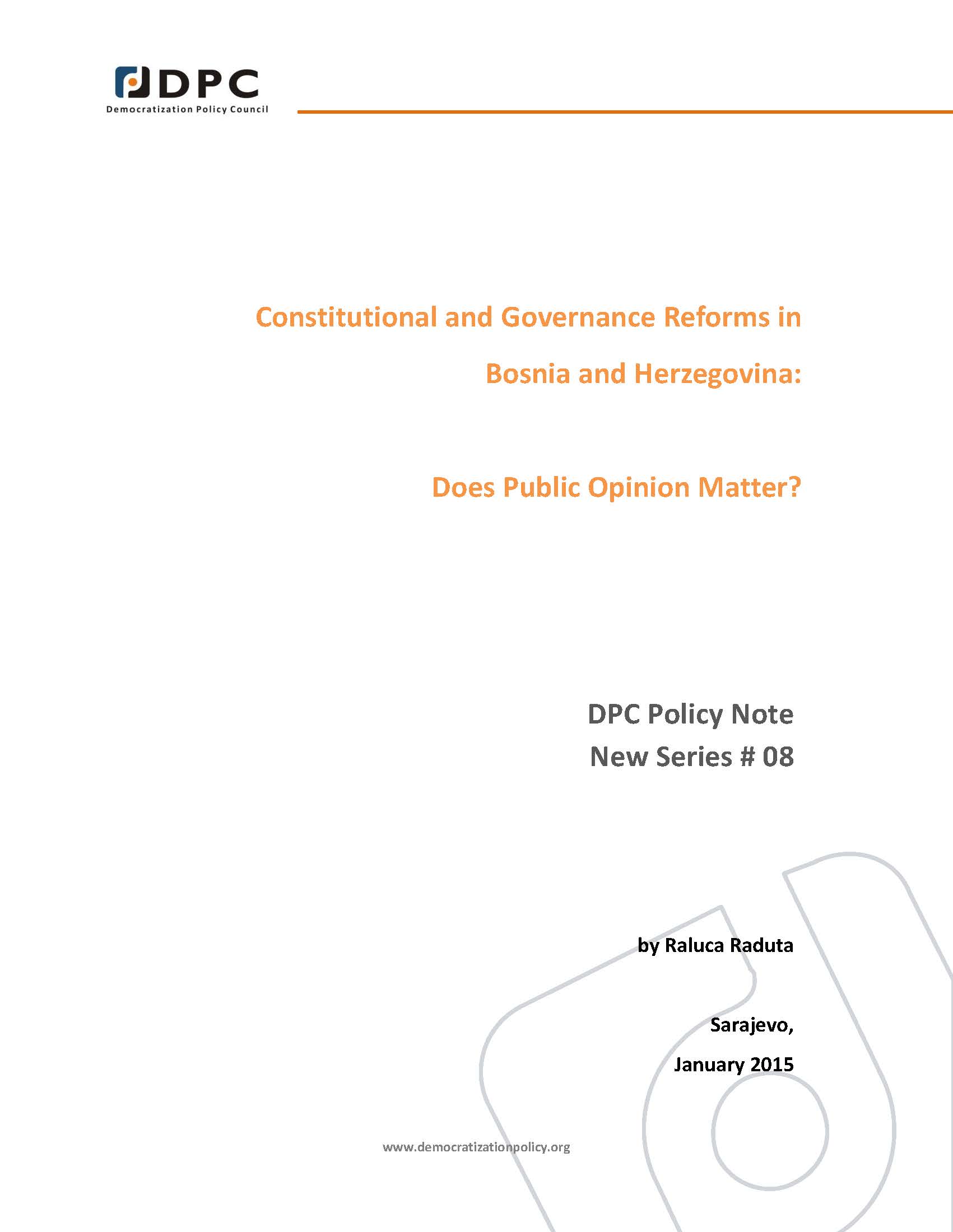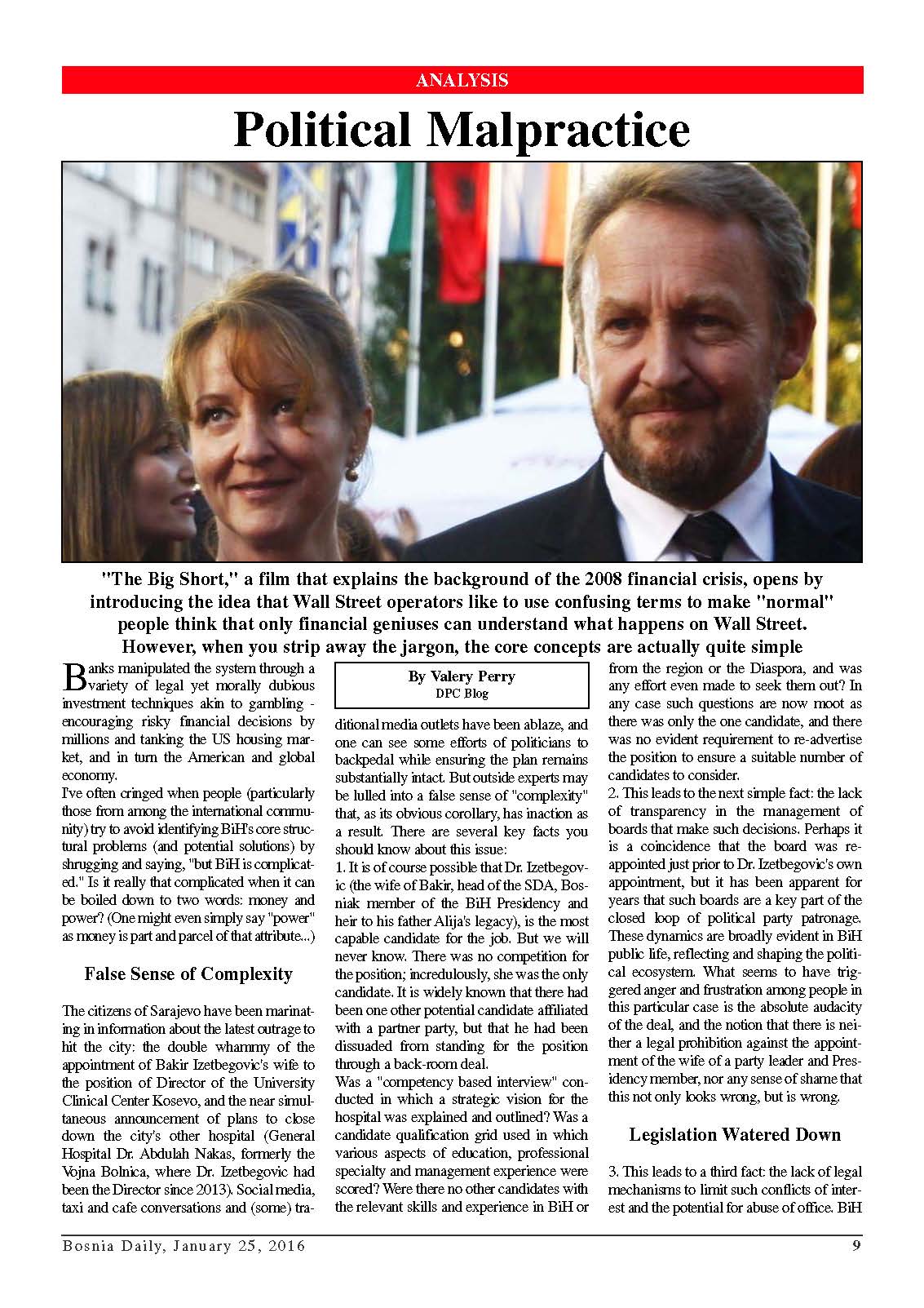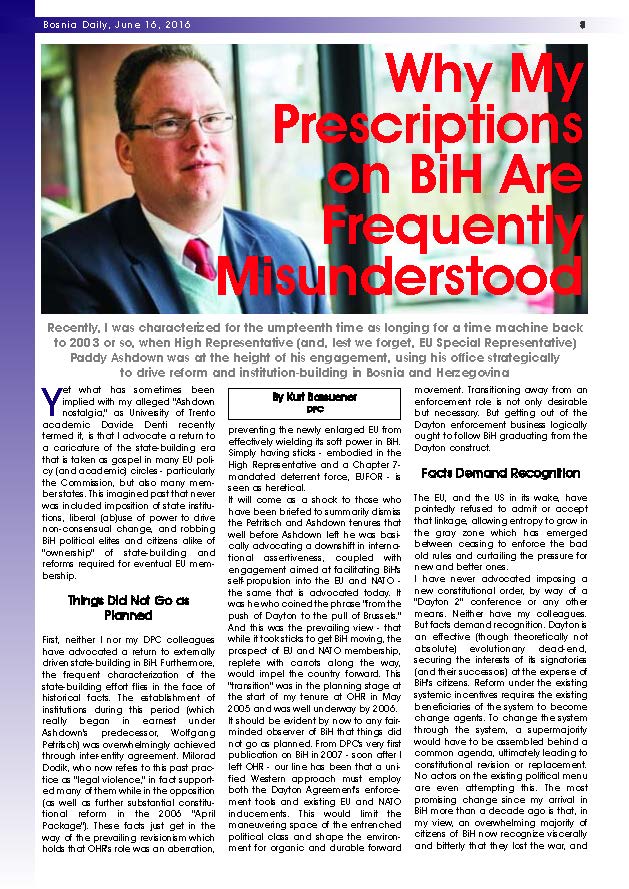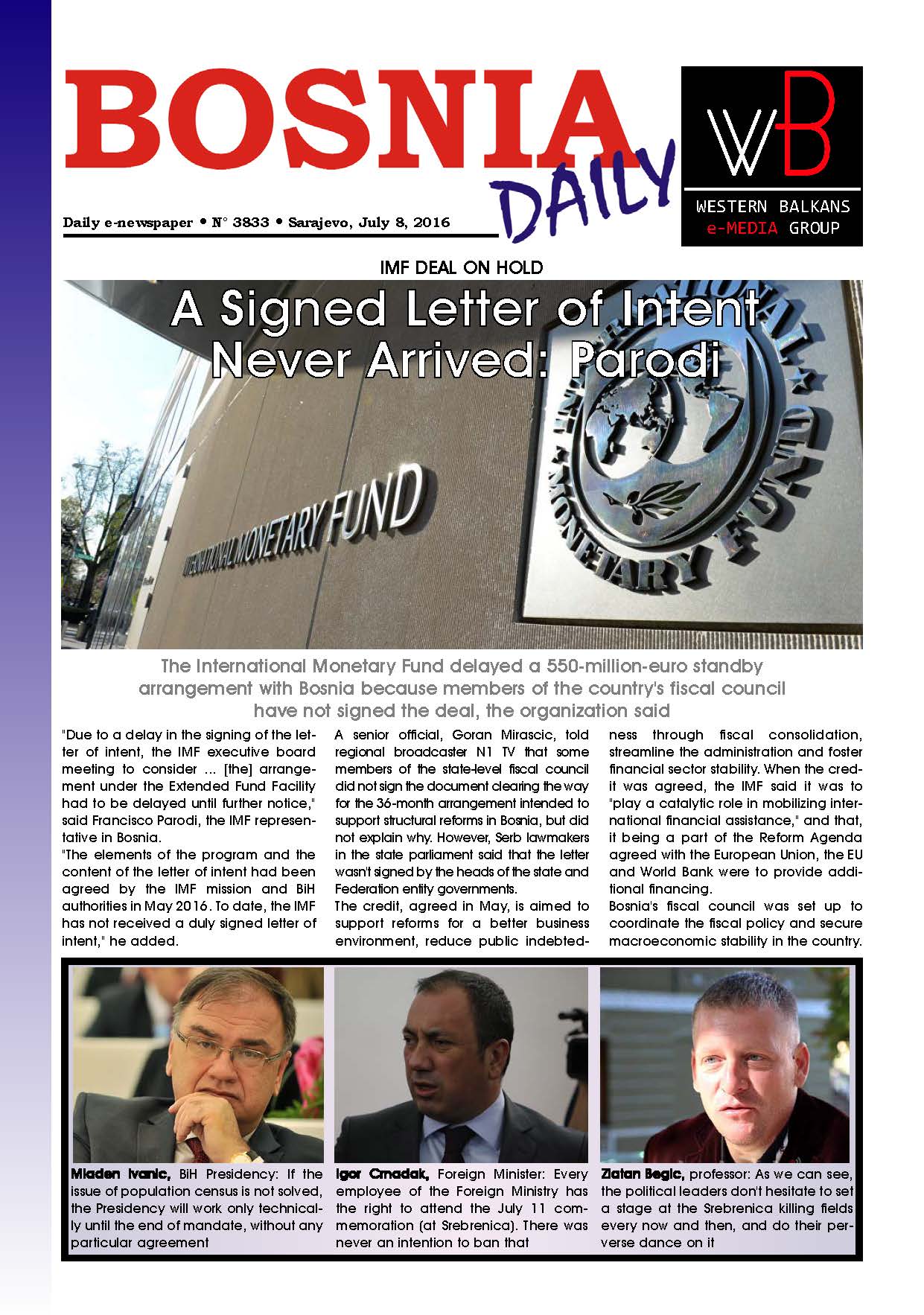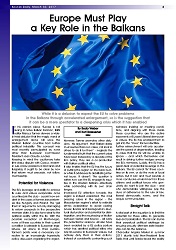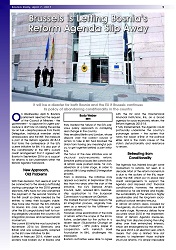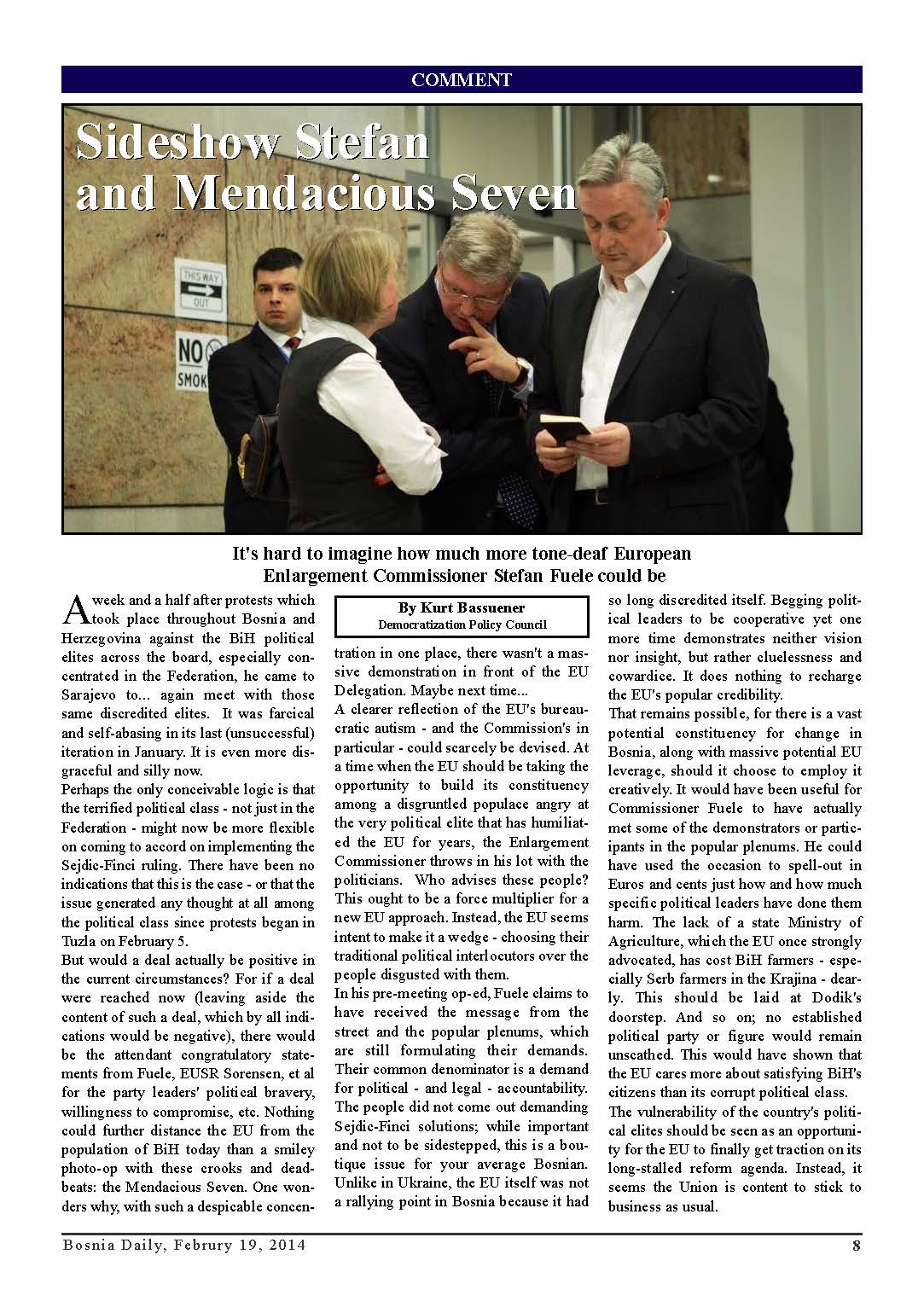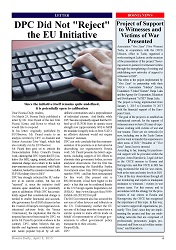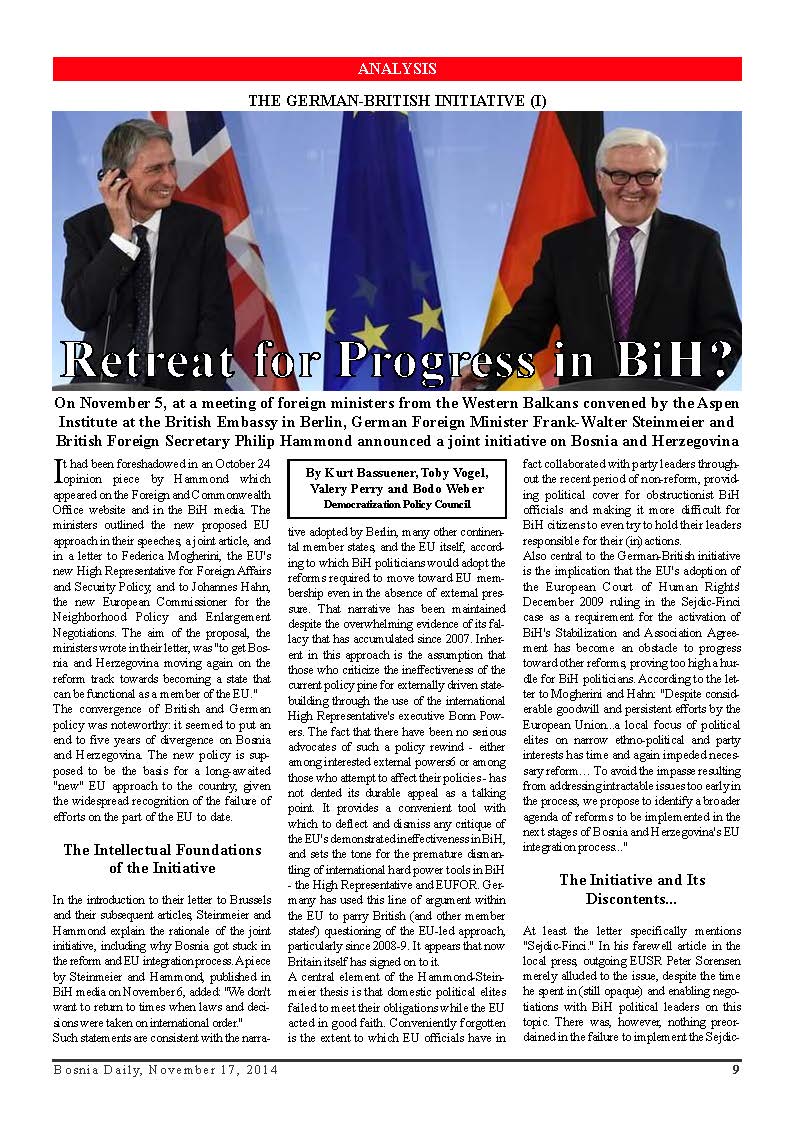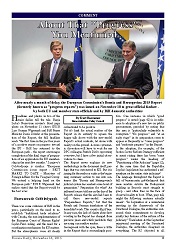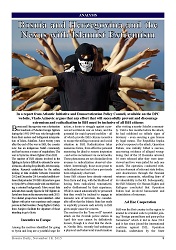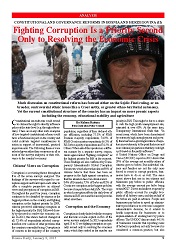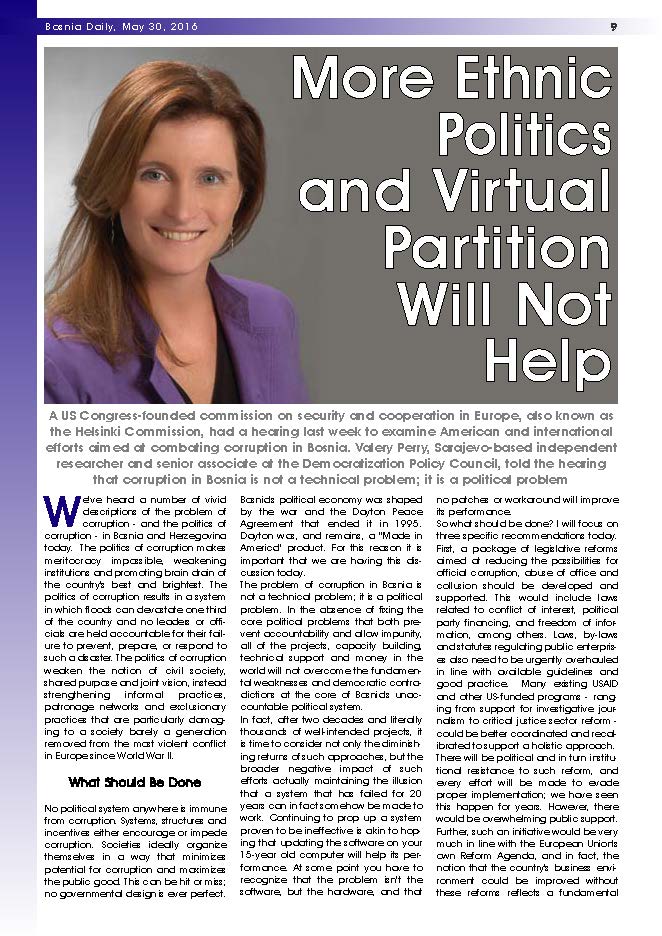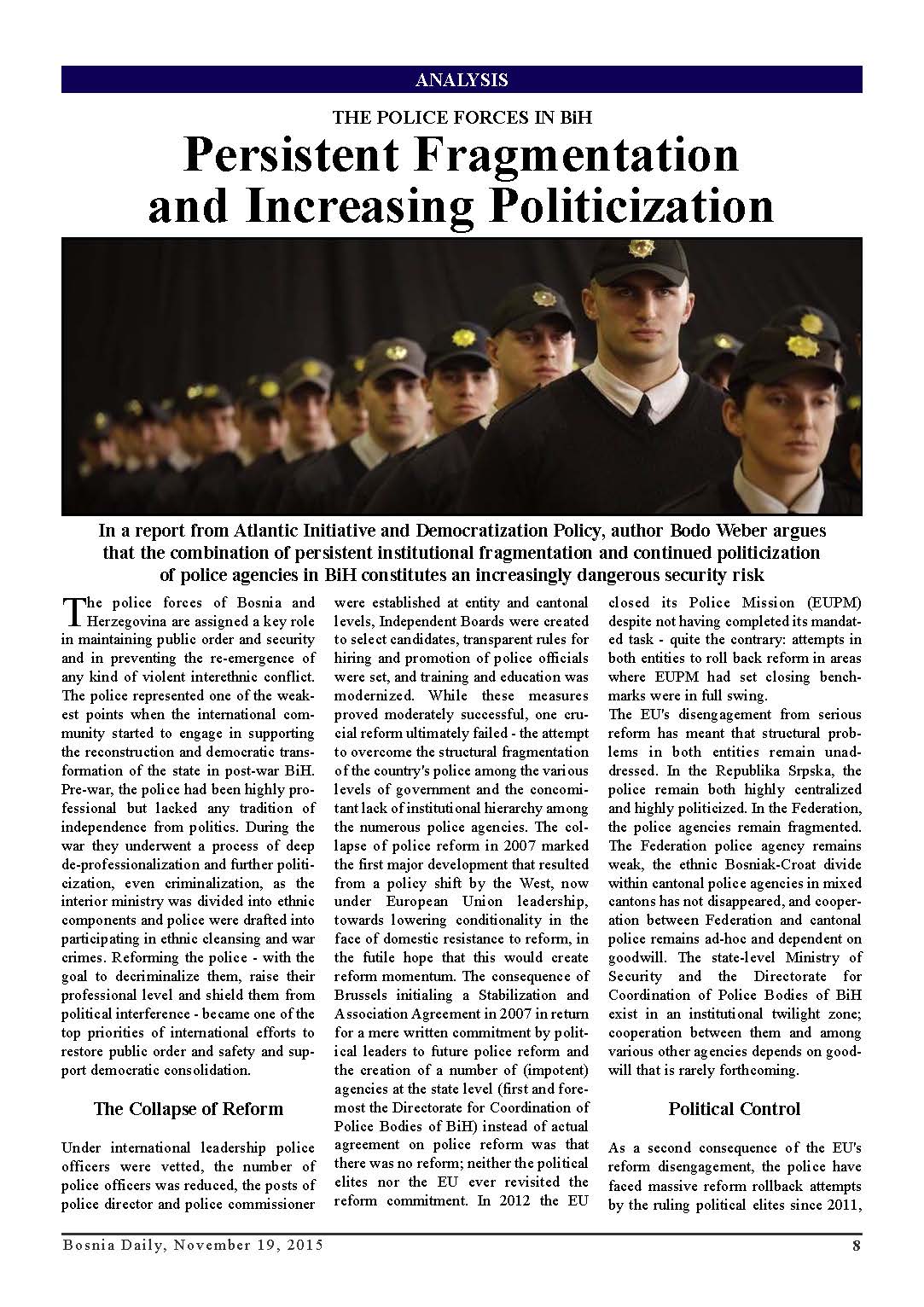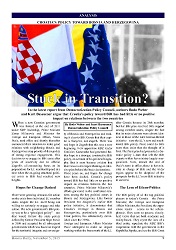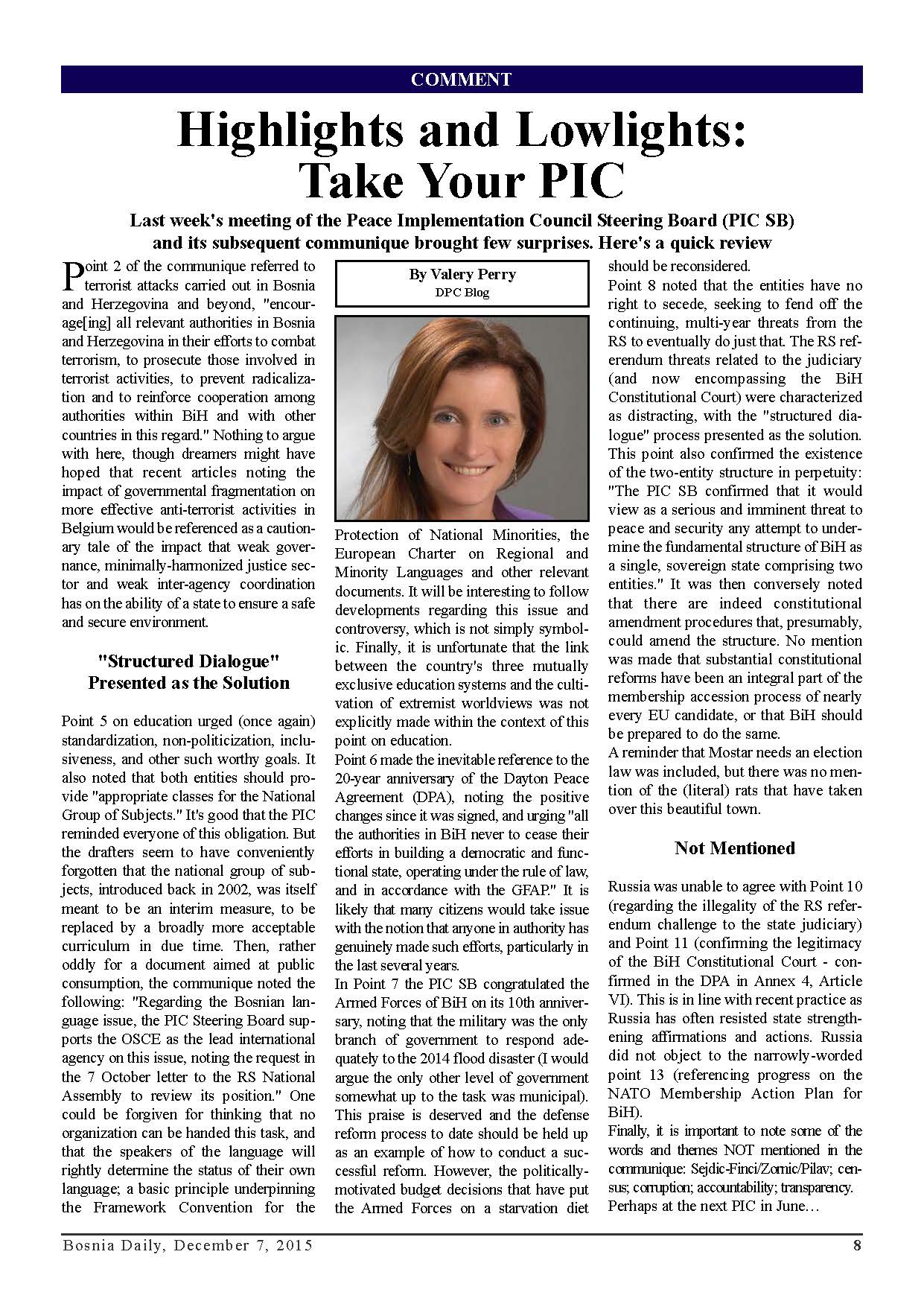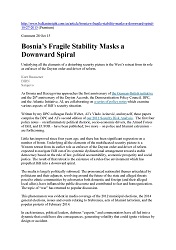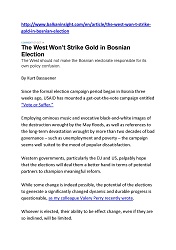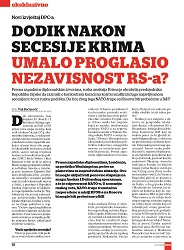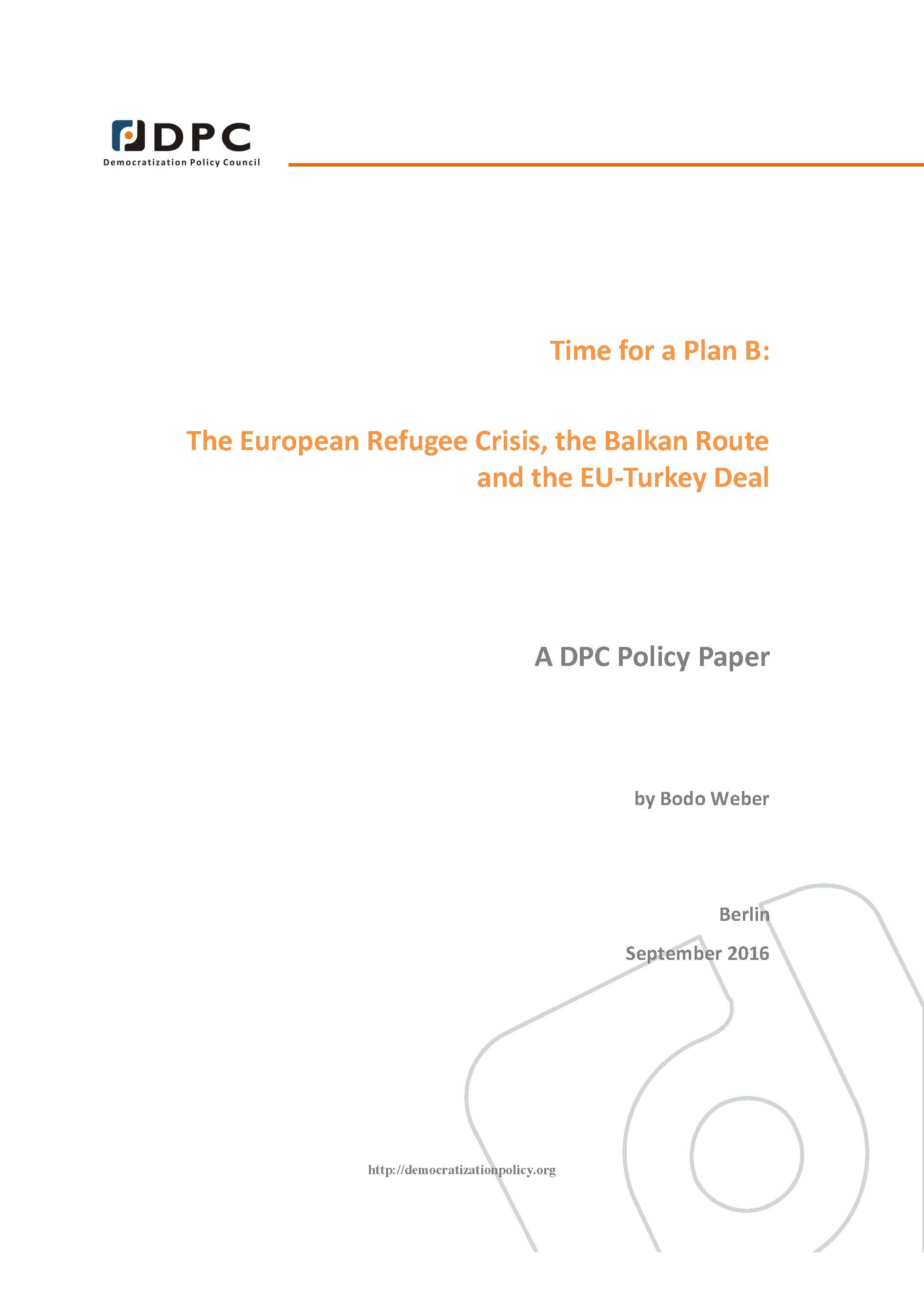
DPC POLICY PAPER: Time for a Plan B: The European Refugee Crisis, the Balkan Route and the EU-Turkey Deal
DPC POLICY PAPER: Time for a Plan B: The European Refugee Crisis, the Balkan Route and the EU-Turkey Deal
Keywords: Europe; refugee crisis; Syria; Balkan route; EU-Turkey agreement; Hungary; borders; segregation;
Over the course of 2015, an estimated 1.5 million people – the bulk of them refugees from Syria – made their way from Greece to Western Europe via the Balkan route. The shift to this previously marginal route for irregular entry of refugees and migrants into the EU led to the collapse of the EU’s external border in the Aegean and turned the long-standing problem of the EU’s deficient common asylum policy, which disproportionately affected the southern member states, into a full-fledged crisis. This crisis was of the EU’s own making and could have been avoided with sufficient political will. If the international community had fully funded UNHCR’s Syria refugee response plan rather than providing just 35% of the requested budget in 2015, and if a few EU member states had been willing to resettle 2- 300,000 Syrians from Turkey, Lebanon, and Jordan, the EU most probably would not have seen more asylum-seekers in 2015 than in previous years. Instead, the Union’s Dublin system broke down. Following the reinstatement of internal borders in half a dozen member states, so did Schengen, amplified by additional ingredients: the weakness of Greece’s public administration; the fragility of asylum systems, administrative capacities, and democratic policing in the Western Balkans; and the authoritarian transformation of Hungary’s political system. As late as early autumn 2015, the refugee crisis was still fully manageable. The EU’s immediate response followed the playbook used in various crises from the eurozone crisis onwards – a combination of reactive German leadership supported by a coalition of willing member states. On September 4, Chancellor Merkel, supported by her Austrian counterpart Werner Faymann, arranged with Prime Minister Viktor Orbán for the transit of refugees and migrants from Hungary with the aim to avert an escalation of the situation in that country. Merkel assembled a coalition of willing states that accepted to receive the bulk of refugees and migrants and worked with the countries on the Balkan route to avoid regional tensions over the wave and to achieve an initial smooth transit free of major human rights violations. However, unlike in previous crises, Merkel’s attempt to shift from crisis management to a joint European policy failed. Merkel and the EU got stuck when a relocation scheme for 160,000 asylum seekers, approved later in September by a weighted majority of member states, provoked dissent from Robert Fico, Slovakia’s prime minister. Fico’s announcement (supported by other Central European countries) that Slovakia would not implement the scheme marked a turning point: with it, the EU in effect ceased to function as a rules-based entity in the field of refugee and asylum policy. A rise in subsequent unilateral measures by member states led to the gradual erosion and ultimate collapse of the coalition of the willing, with France, Sweden, and Austria defecting from it and abandoning their liberal asylum policies. Yet giving in to populist pressure still proved unsuccessful in mobilizing support from electorates: even in Slovakia, Fico’s party subsequently saw substantial losses to right-wing forces from which it had taken its antimigration rhetoric. At the same time, Merkel also came under domestic pressure for her liberal approach. In the absence of joint EU action, the receiving countries instead turned their attention to ways to reduce the flow of refugees and migrants through the Balkan route, even if that meant that the countries along the route would have to breaching domestic and international legal obligations. The countries on the Balkan route were now being held hostage by individual EU member states, first and foremost Austria. Vienna’s policy led in time to the complete closure of the route. The failure of the EU’s established crisis management revealed the core problem behind the refugee crisis: the EUs own unresolved internal problems which turned a manageable migration emergency into an existential issue for the EU. Merkel’s policy style – managerial, and averse to risks, broad strategies, and vision – had seen the EU through a decade of crises, but at the same time camouflaged the core of the Union’s weakness: the reluctance to address its structural challenges. In the end, this failure contributed to the erosion of internal legitimacy and joint action which greatly contributed to the UK’s sleepwalking out of the EU. In this change-averse environment, Merkel’s only remaining option was the desperate outsourcing of the EU’s refugee management to Turkey, sealed by the March 17 EU-Turkey refugee deal. There is both an irony and a political logic in the fact that the deal, which tied the refugee issue to the reanimation of Turkey’s EU accession and visa liberalization process, was a product of the policy of two member states – Germany and Austria – that for years had blocked Turkey’s EU bid. The deal stopped the flow of refugees and migrants across the Aegean Sea practically overnight. But in the medium and long term, it will inflict more collateral damage than it delivers in short-term benefits. First, by declaring Turkey a safe country for asylum-seekers – a legal sleight-of-hand to enable the return of those arriving on the Greek islands to Turkey – the EU has damaged its internal legitimacy as a Union based on liberal democratic values and rules, and endangered the internal enforcement of decisions and rules in all policy areas. Second, by offering Ankara progress on EU accession without internal agreement on Turkey’s eventual membership, the EU severely diminishes the transformative power of its enlargement policy and undermines pro-European, pro-reform Turks. Third, by outsourcing the management of the European refugee crisis to an increasingly authoritarian regime in Ankara while continuing to avoid addressing its own structural problems, the EU has made itself dependent on Turkey. This bodes ill for the EU’s ability to deal with future crises. The coup attempt in Turkey of July 15 and resulting political tensions between Ankara and Brussels have not substantially affected the refugee deal. But the Turkish government’s threat to re-open the gates to Europe and the hypocritical demands from within the EU to freeze Turkey’s EU accession process have highlighted some of its core deficiencies. In order to prevent long-term damage to the EU and mitigate the risk of a purely reactive response should the deal collapse, it is high time for the EU to develop a more sustainable Plan B for handling the refugee crisis, and to address the core structural problems which openly lurk behind it.
More...
